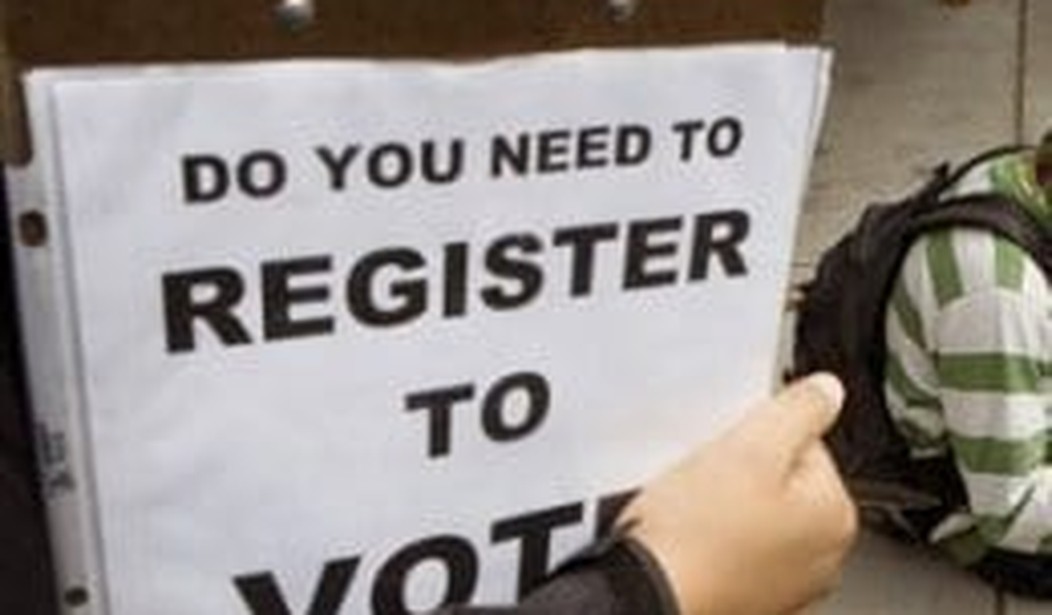WASHINGTON – Congress is stepping up efforts to make the nation’s elections system more efficient and less time-consuming but at least one lawmaker maintains the job can best be handled by the individual states.
Sen. Pat Roberts (R-Kansas), ranking member on the Senate Committee on Rules & Administration, acknowledged during a hearing on election reform Wednesday that some states are experiencing problems when turnout is high.
But Roberts said he concurs with a finding of the Presidential Commission on Election Administration that the matter is best addressed by officials outside of Washington.
“The commission did not call for federal legislation,” Roberts said, adding that solutions “must be adopted by and tailored to the needs of the local community.”
While perhaps well-intentioned, Roberts said, federal intervention “could make matters worse rather than better.”
Roberts’ voice was a lonely one at the hearing conducted to consider two legislative proposals – the Lines Interfere with National Elections (LINE) Act, intended to help implement a commission recommendation that no voter should wait in line for more than 30 minutes to cast a ballot, and the Fair, Accurate, Secure and Timely (FAST) Voting Act, which would create a competitive grant program to encourage states to aggressively pursue election reform.
Sen. Chuck Schumer (D-N.Y.), the committee chairman, expressed support for both measures, asserting that “running an election is not an easy job, but because it is so important to our democracy we aspire to perfection.”
“One of the most important things we can do is to ensure that the way we administer elections keeps up with the times,” Schumer said. “Updating the election infrastructure of our democracy is critical to ensuring all eligible Americans are able to vote.”
Sen. Barbara Boxer (D-Calif.), sponsor of the LINE Act, told committee members that during the 2012 election some voters spent as many as eight hours in line attempting to cast their ballots. Some gave up the effort before their opportunity arrived, thus relinquishing their franchise. In some instances an eight-hour wait was unheard of.
Boxer cited the case of Desiline Victor, a 102-year-old Florida resident who had to wait three hours to vote.
“She almost turned 103 waiting in line,” she said.
Boxer said her legislation would require states where voters experienced long lines in the 2012 election to develop plans to minimize waits at the polls.
“The right to vote is the essence of our democracy, the gift our founders gave our citizens,” Boxer said. “But when you make people wait in line for hours –when you force them to choose between voting or caring for a sick child, or going through severe pain as they wait or risking their jobs as they wait – their right to participate in our democracy is fundamentally denied.”
Sen. Chris Coons (D-Del.), said his proposal, the FAST Act, would reward states that improve elections by making voting faster and more accessible to all citizens.
“The legislation incentivizes states to put forward their best efforts to improve elections,” Coons said. “As a competitive grant program, the best proposals with the greatest impact are rewarded with the seed money to make it happen.”
Cons said the 2012 election was “a wake-up call.”
“Tens of thousands of Americans, including Republicans and Democrats in both ‘red states’ and ‘blue states’ saw their fundamental right to vote for the candidate of their choice eroded by exceptionally long lines and confusing procedures in well over a dozen states,” Coons said.
The 2012 election witnessed errors on voter rolls in Ohio, delays in counting ballots in Arizona and long lines in Florida, Virginia and elsewhere.
In Colorado, Coons noted, voters said they checked the box on the touchscreen panel to vote for Republican presidential nominee Mitt Romney “but the machine kept switching their pick to President Obama.” Pennsylvania voters reported the same problem – only in reverse.
“This is unacceptable,” Coons said. “Voting is the ultimate civil right in our free society and we should treat it accordingly.”
Roberts made it clear that he also is “opposed to long lines and people waiting.”
“I just think we can settle it better in Tallahassee,” he said.
Some states already have taken steps to address shortcomings in the election system. Florida recently extended the early voting period – reversing an earlier law that had shortened it — and simplified ballots to reduce the waiting time to vote.
The bipartisan Presidential Commission on Election Administration released a 70-page report in January that concluded local election officials across the country should expand early voting, allow online registration and do a better job enforcing federal election laws.
Schumer said he intends to file legislation to implement the commission’s findings.









Join the conversation as a VIP Member